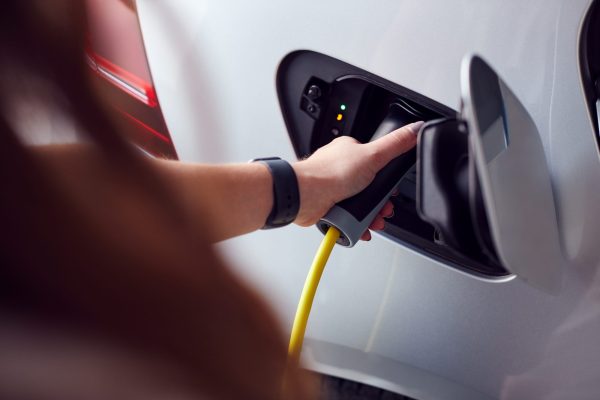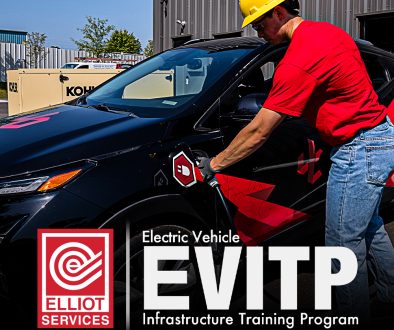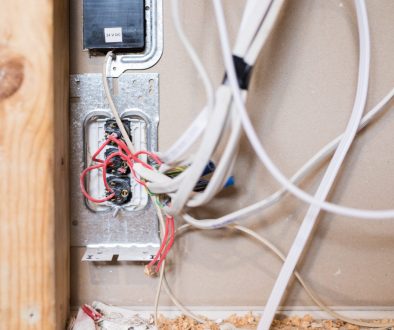How Much Does It Cost to Charge an Electric Car at Home
Charging an electric car at home typically costs between $0.10 and $0.20 per kilowatt-hour, translating to between $5 and $15 for a full charge. However, the amount you pay depends on factors such as your local electricity rates and the car’s battery size.
Below, we explore factors that affect how much it costs to charge an electric car, including:
- What affects the cost of charging an EV at home?
- Comparing electricity rates and charging levels
- How long it takes to charge an electric car
- Home EV charger installation costs
- Tips to reduce your EV charging expenses
Wondering how much it costs to charge an electric vehicle? Keep reading for more information.
Power Your EV Smarter With Help From Elliot Services
At Elliot Services, we’re your full-service electrical contractor, ready to help with a range of residential electrical services. Contact us today to discuss installing an EV charging station.
What Affects the Cost of Charging an EV at Home?
The cost to charge an electric vehicle at home depends on a variety of factors, including your vehicle’s battery size, how much you pay for electricity, and what type of charger you use. On average, Kentucky customers pay about $0.13 per kilowatt-hour. Therefore, if your EV has a 60-kWh battery, a full charge costs about $7.80.
Light EV users who drive around 500 miles per month might spend between $15 and $25 monthly on charging, while heavier users driving around 1,500 miles may pay $45-$75.
The cost of charging an EV also depends on whether you charge during peak or off-peak hours. However, charging at home is one of the most affordable, convenient ways to power your EV.
Comparing Electricity Rates and Charging Levels
Home EV charging stations usually have two levels: Level 1 and Level 2. The charging station you choose determines how long it takes to charge an electric car.
Level 1 uses a standard 120-volt outlet and charges the vehicle slowly. Level 2 charges run on 240 volts and charge vehicles much faster. These chargers deliver more power and cost more to use, but the total cost ultimately depends on how much you drive and what your utility company charges.
Many utility companies offer time-of-use plans. With these plans, the cost of electricity varies depending on the time of day, making off-peak charging more economical. Understanding your utility company’s rate structure and choosing the best charger for your needs can help you balance operating costs and convenience.
How Long It Takes to Charge an Electric Car
Charging times depend on both the charger type you use and the vehicle you own. For example, Level 1 chargers add about 3-5 miles of range every hour. You may need to have your vehicle plugged in 20-40+ hours to get a full charge. Level 2 chargers add 15-30 miles of range per hour and fully charge most EVs within 4-10 hours. The charging time directly affects how much energy you ultimately use and your monthly electricity costs.
Here’s a look at typical Level 2 charging times for popular EV models:
- Nissan Leaf (40 kWh): 6 hours
- Chevy Bolt (65 kWh): 7 hours
- Tesla Model 3 (60 kWh): 8 hours
- Ford Mustang Mach-E (88 kWh): 10 hours
Home EV Charger Installation Costs
Installing a Level 2 electric car charger at home typically costs between $500 and $2,000, depending on your setup. Opting for a basic installation with the charger placed near an existing electrical panel puts costs at the lower end of this range. However, if your home requires an electrical upgrade, a panel upgrade, or trenching, costs may fall in the upper end of that range.
How much it costs to install an electric car charger may include permit fees ranging from $50-$200 and the charging unit itself, which is usually $300-$700. To help you offset this cost, utility companies and government programs may offer rebates or tax credits.
While DIY options exist, professional installation is highly recommended. This ensures safe, efficient, and code-compliant charging that protects your vehicle and your home.
Tips to Reduce Your EV Charging Expenses
If your utility company offers TOU plans, charging during off-peak hours reduces charging expenses. You may also consider using a smart charger or energy monitor to track usage and costs. Additionally, check for tax credits and rebates to reduce installation expenses. Over time, EVs cost less to power than gas vehicles, providing long-term savings and convenience at home.
Get Expert EV Charger Installation from Elliot Services Today
Find safe, reliable, and quality service for all your EV charging needs with Elliot Services. Give us a call today to learn more about our residential electrical services.




